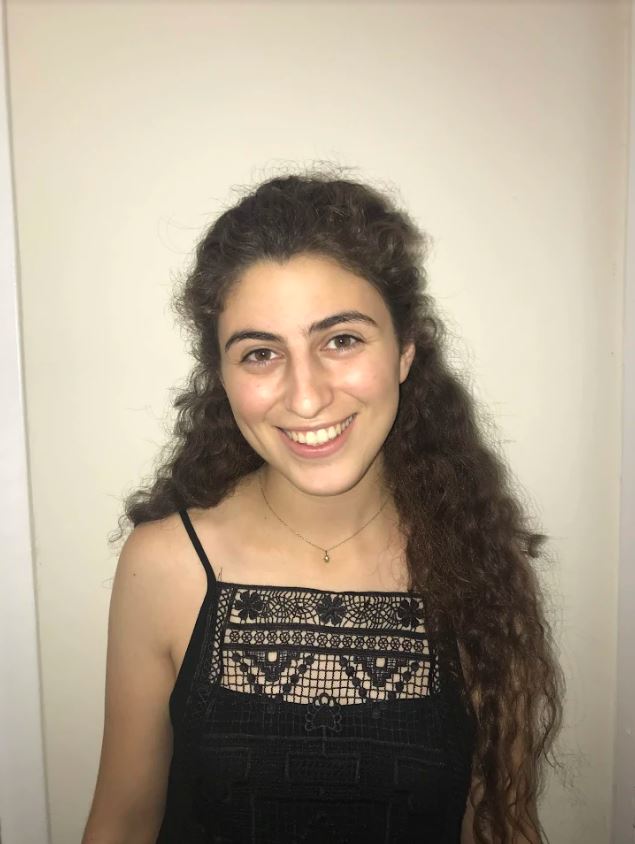
The campus of a twenty-first century university is a marketplace. Students from far and wide come to exchange, display, and trade their most valuable currency: their opinions. Woven with real fabrics and embroidery from ancient history, these opinions are constructed from each student’s most valuable “textile” – their personalized economy of words, to which they trade with others for commodities of even greater value: partnerships, alliances, and organizations.
Amidst the motley of colors, fabrics, and designs, the greatest treasure comes from these relationships woven in the marketplace. The students with these partnerships triumph as the most powerful merchants. As pro-Israel students, our caravan has been open to all, open to discussion regarding its make, its history, and its significance. Despite that our products have been called for boycott, divestment, and sanctions, there is a hope-driven stamina that keeps us yearning to engage with other merchants, just to have the chance to exchange some currency, some opinions.
This marketplace can be overwhelming and feel heated, and even more so, as a pro-Israel student. Yet, from the little chance we are given to feel welcome with our opinion, the most valuable exchange there could be with other students is dialogue. Despite the mundanity that it may hold in larger society, dialogue can eradicate much toxicity that comes from preconceived falsehoods about a person, a history, and an ideology.
Such toxicity contaminated the opportunity for dialogue this past month at UC San Diego when Students for Justice in Palestine hosted Jewish, anti-Zionist, Miko Peled. With no opinions brought for display, exchange, or trade, I came to hear what aspects of Peled’s economy of words he thought were the most valuable to share at our marketplace.
Miko Peled comes from a background of integral players in the history of the establishment of the Jewish state. His grandfather’s signature can be found on the Israeli Declaration of Independence, and his father was a general for one of the most groundbreaking wars in Israeli history: the Six-Day War. Throughout his lecture, he slandered the State of Israel for being guilty of three internationally-recognized crimes: apartheid, genocide, and ethnic cleansing – three words that, used accusingly, hold heavy gravitas.
“…the most valuable exchange there could be with other students is dialogue.”
Miko Peled came to UC San Diego knowing the words he had to trade were damaging, toxic, and brought little aid to the construction of dialogue. To deny a people’s history is a form of defamation – Holocaust denial, for example. To deny the Jewish people’s origin, the Land of Israel, is defaming the past history, the present existence, and the future potential for that people to prosper. Peled claimed “the Zionists” had concocted a farce of an identity, that the Jewish people were just a religion, and not the ethno-religion they are definitively. Yet, the slanderous defamation he had been spreading caught up to him. Throughout the talk, Peled referred to himself as a Jew, despite the lack of religiosity present in his own life. To be Jewish without religion? Just to be Jewish? Would that not classify the Jewish people as a people, with an indigenous homeland, religiosity irrelevant to the identity?
Intersectionality was absent in this talk. As a Jew on campus, since learning about intersectionality my freshman year, I looked to the concept of intersectionality for heroic refuge. I was taught that as a minority, I should look to intersectionality as a source of support for when my Jewish identity alienated me from my others. Miko Peled shared plenty of anguish for the Zionist Jews – Jews who believed in the right to self-determination of their ancestral homeland were not “good Jews”. If Jews were to be welcomed in intersectional environments, or to stand side-by-side with fellow activists for social change in the streets of the United States, Zionist Jews were not included in this welcoming.
Despite the pause that COVID-19 has put on this annual affair, the pro-Israel community celebrates the State of Israel and the story of the Jewish people yearly in the spring. This year, as we know the circumstances have compromised these plans, we feel a rift in the expected blue-and-white festivities. Every year, these celebrations mark our calendars for us, engaging the community invitingly in a shared appreciation of Israel. The welcoming of hate, defamation, and unapologetic toxicity is not a future we should envision or work to foster. As the next generation, we cannot allow toxic rhetoric and marginalization of already marginalized groups to
masquerade as advancing platforms of social justice. May we return to campus in the fall with the thirst for constructive dialogue, and shall we quench that thirst with relationships and alliances for a better future.
Contributed by 2019-2020 University of California – San Diego CAMERA Fellow Bianca Kermani.

